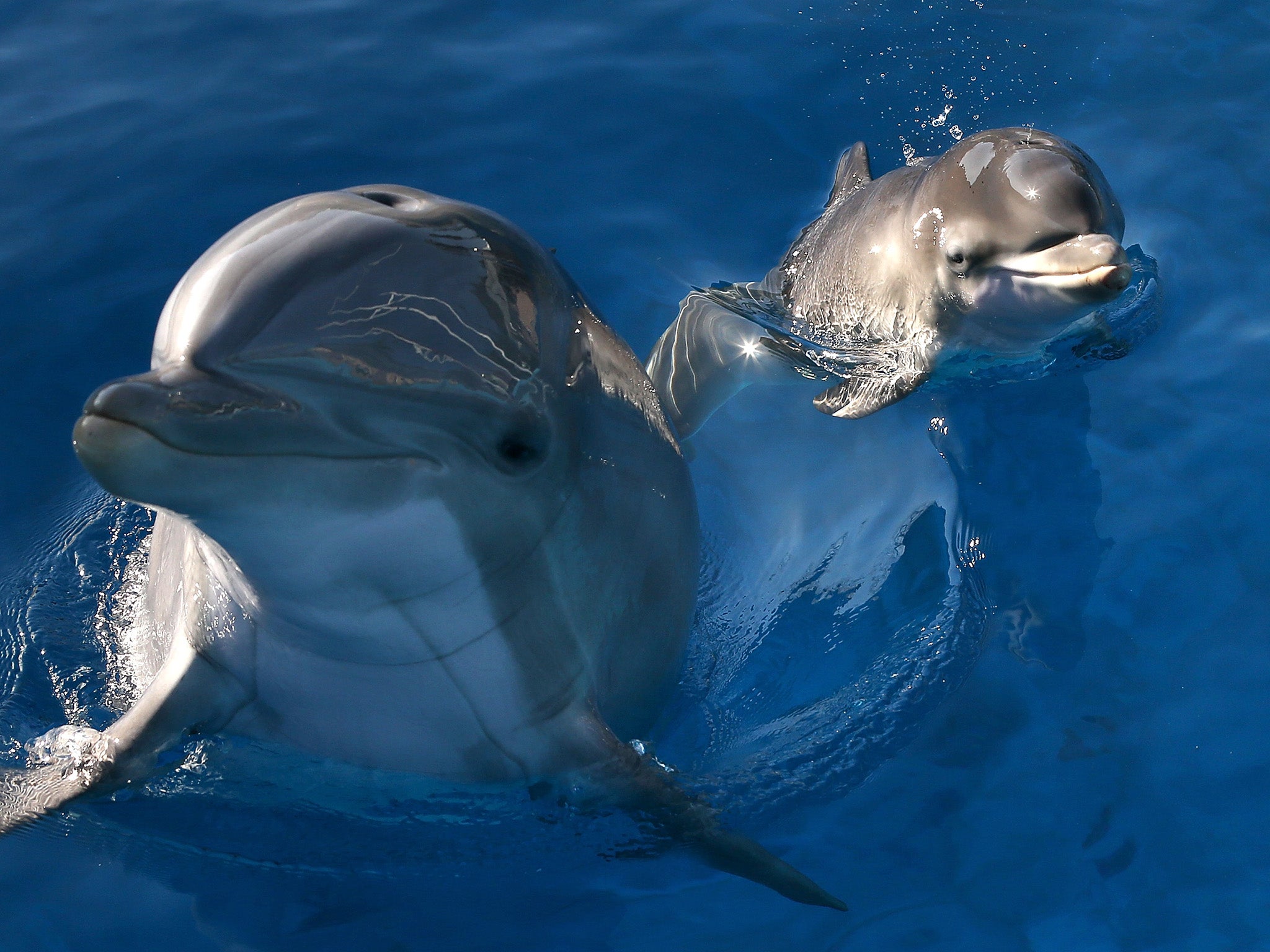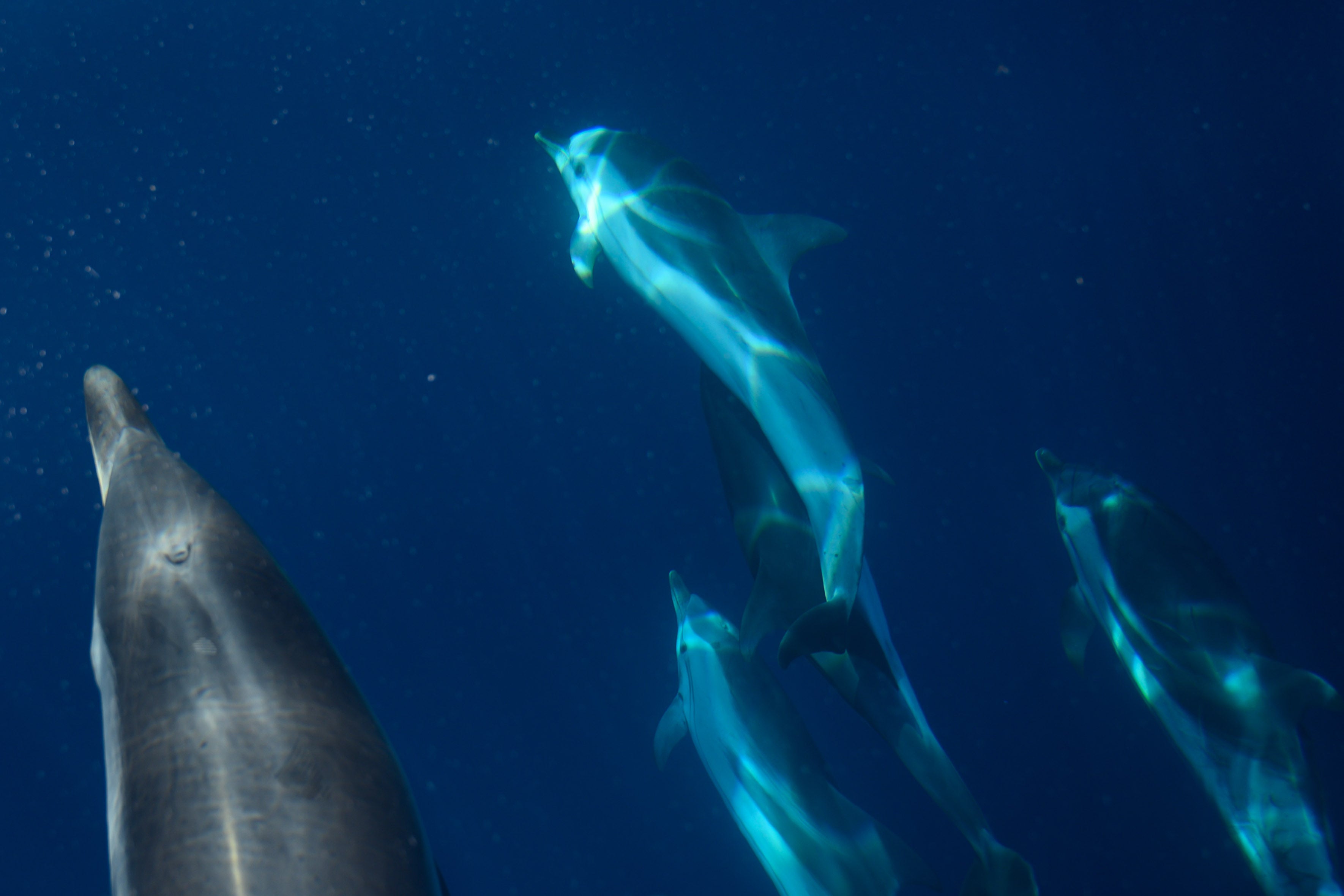Dolphins ‘have regional accents’ as whistles influenced by where they live
Nurture trumps nature as scientists find it’s not genetics but location and community that influence speech, Liam James writes

A dolphin develops an accent based on where it lives, research has found.
Biologists built on earlier studies that found a link between location and how dolphins communicate to determine the aquatic mammals have regional accents in a similar way to humans.
The latest research focuses on the signature whistles that dolphins use to identify each other.
Researchers analysed 188 hours of recorded whistles from common bottlenose dolphins in six geographically distinct areas of the Mediterranean Sea.
The acoustic properties of these whistles were found to be different depending on the local habitat a dolphin grew up in and the demography of its community.
One raised in an area where the sea bed is lined with sea grass, such as the studied areas of Port Cros or Lampedusa, would have a higher pitched whistle than one raised in an area with a muddy sea bed.
Community demographics were also found to be influential, as large populations tended to have more homogenous whistles than smaller ones.
The whistles in smaller populations had more inflections, suggesting they were more detailed identity markers, as the same dolphins will encounter each other more often.
The nature of dolphin communication remains far from well understood. But the researchers behind this study said they were now closer to ruling out one theory that has persisted down the decades since signature whistles were first recognised by humans: that genetics determine accents.

Genetic differences in the Mediterranean dolphins were found to have no strong influence over their accents – nurture appears to trump nature in this case.
An unfortunate factor researchers expect will have growing influence over how dolphins communicate is human-induced climate change.
Dr Gabriella La Manna, a marine biologist at UNISS and lead author of the study, said: “I would like people to reflect on the importance of the acoustic environment in which dolphins live for the development and maintenance of their communication.
“Human activities, such as commercial shipping and nautical traffic, can severely affect this fundamental aspect of dolphins’ life.”
She added: “Even if the bottlenose dolphin is among the most studied species of Cetacean, many aspects of their ecology and behavior are still unknown.
“Given how quickly human activities are changing the oceans, it is important to understand the environmental and socio-behavioral factors that allow animals to adapt to their environment.”
Earlier studies suggested regional accents in dolphins. Dr La Manna was lead author on a 2020 paper on the same topic and last year BBC researchers found dolphins off the coast of Wales had their own unique dialect.
Dr La Manna said further research is needed to better understand the link between environment and dolphin communication, as well as how the many voices of the species will change under the destructive influence of humans.
The study was pulblished in Nature Scientific Reports.






Join our commenting forum
Join thought-provoking conversations, follow other Independent readers and see their replies
Comments